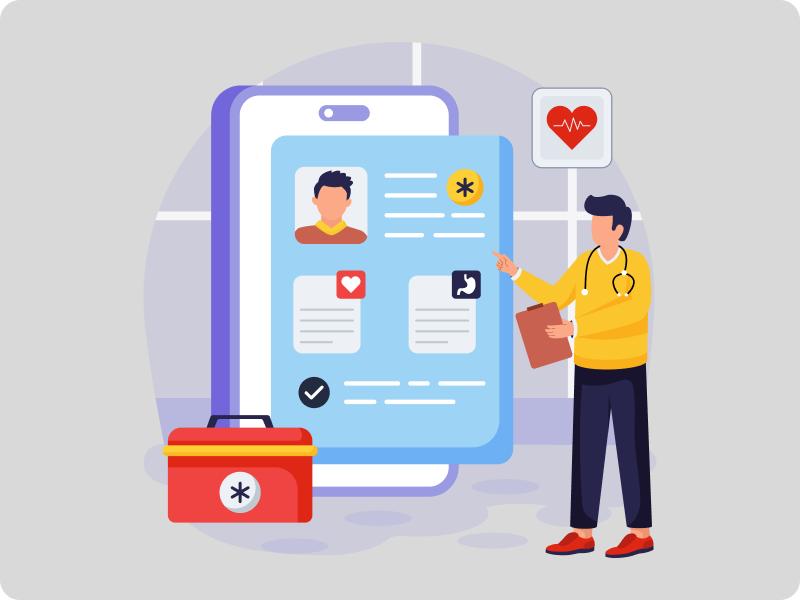Top Challenges in Healthcare Delivery and
How Technology is Transforming Solutions
Healthcare delivery is one of the most critical aspects of modern society, yet it faces numerous challenges that impact patients, providers and systems worldwide. From rising costs to accessibility issues, the healthcare industry is under constant pressure to innovate and adapt. Fortunately, technology is stepping in to revolutionize how healthcare is delivered, offering solutions that are not only efficient but also patient-centric.
In this blog, we’ll explore the top challenges in healthcare delivery and how technology-driven solutions are transforming the industry for the better.
Top Challenges in Healthcare Delivery
1. Increasing Patient Demands and Workforce Shortages
With aging populations and rising chronic disease cases, healthcare providers are under immense pressure to deliver timely and efficient care. Meanwhile, staff shortages—from physicians to nurses—further strain the system, leading to burnout and compromised patient care.
2. Fragmented Healthcare Systems and Data Silos
Many healthcare facilities operate with disconnected systems, making it difficult to share patient records across providers. This fragmentation leads to miscommunication, duplicate tests and delays in treatment.
3. Rising Healthcare Costs
Healthcare expenses continue to escalate due to expensive treatments, administrative burdens and inefficient resource utilization. Without cost-effective strategies, both patients and providers face financial challenges.
4. Patient Engagement and Adherence Issues
Many patients struggle with following prescribed treatments, attending follow-up visits and actively managing their health. Without continuous engagement, patient outcomes suffer and readmissions increase.
Learn how JGD Health’s secure, integrated healthcare solutions enhance efficiency and patient engagement.
5. Cybersecurity and Data Privacy Concerns
With the digitization of medical records, healthcare organizations must ensure robust cybersecurity measures to protect sensitive patient data from breaches and cyberattacks.
How Technology is Transforming Healthcare Delivery
1. AI and Automation for Operational Efficiency
Artificial intelligence (AI) and automation are streamlining administrative tasks, such as appointment scheduling, billing and medical transcription, allowing healthcare staff to focus on patient care.
Fact: AI-powered chatbots and virtual assistants can handle up to 80% of routine patient inquiries, reducing staff workload.
2. EMR Integration for Seamless Data Sharing
Integrated Electronic Medical Records (EMRs) enable seamless communication between departments, improving care coordination and reducing errors caused by fragmented systems.
Discover now
3. Telehealth and Remote Patient Monitoring (RPM)
Telehealth and RPM tools allow healthcare providers to monitor patients remotely, reducing hospital visits while ensuring timely interventions for chronic disease management.
4. Wearable Devices and IoT for Real-Time Health Tracking
Wearable health devices, such as smartwatches and continuous glucose monitors, empower patients to track their vital signs, helping providers intervene early in case of abnormalities.
5. Blockchain for Enhanced Data Security
Blockchain technology ensures secure, tamper-proof medical records, reducing fraud and enhancing patient data privacy.
JGD Health offers top-tier patient data protection.
Overcoming Barriers to Healthcare Technology Adoption
1. Staff Training and Adaptation
Providing training and user-friendly interfaces ensures that healthcare staff can seamlessly transition to digital tools.
2. Regulatory Compliance
Healthcare providers must adhere to HIPAA and GDPR Regulations when implementing new technologies.
3. Cost of Implementation
While initial investments may seem high, the long-term cost savings from improved efficiency and reduced errors outweigh the expenses.
Conclusion
Healthcare challenges are evolving, but technology offers powerful solutions to enhance efficiency, improve patient outcomes and secure medical data. By embracing AI, telehealth, EMR integration and automation, providers can deliver seamless, patient-centered care.
Are you ready to overcome healthcare delivery challenges with technology? Contact us now.




